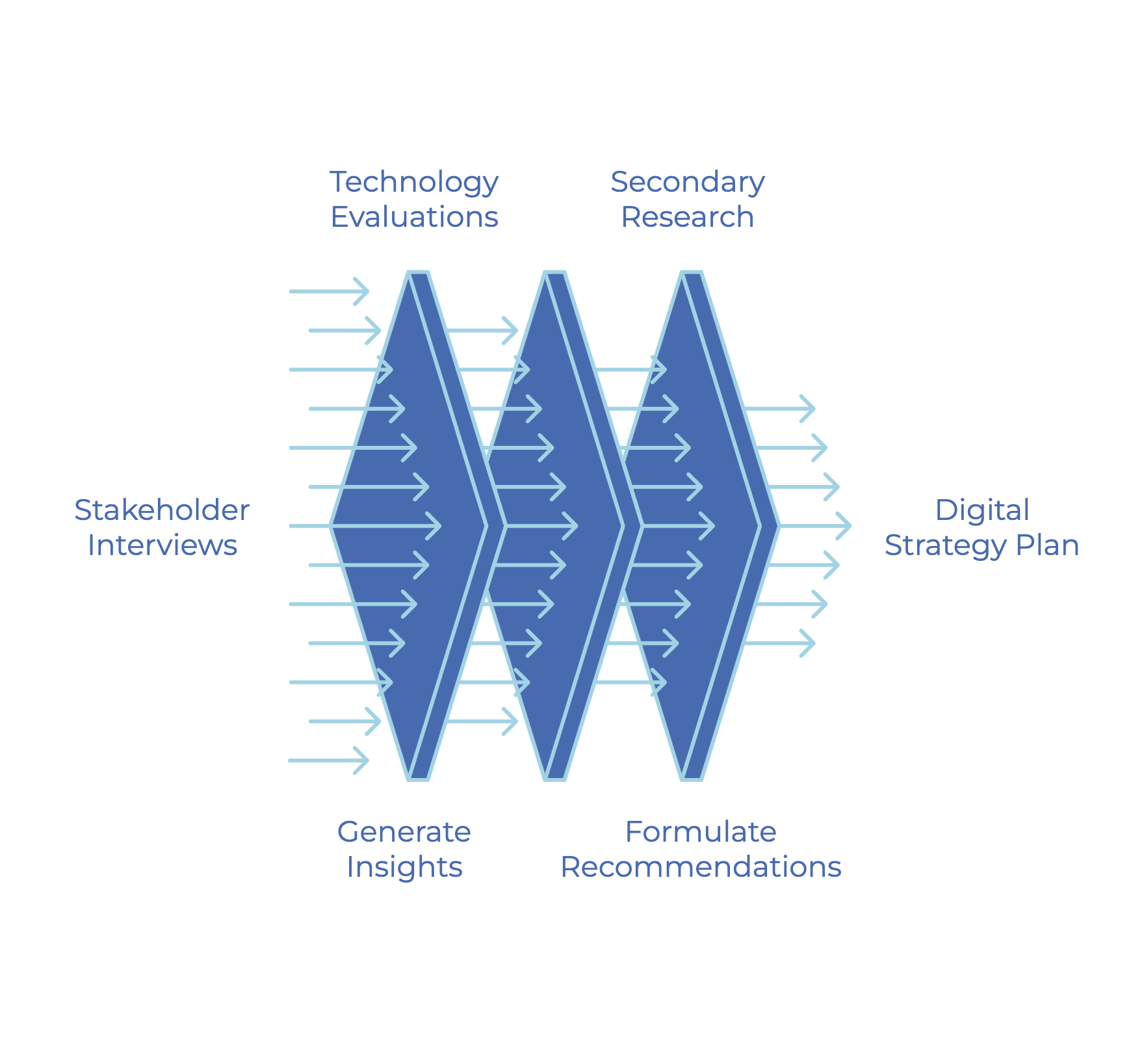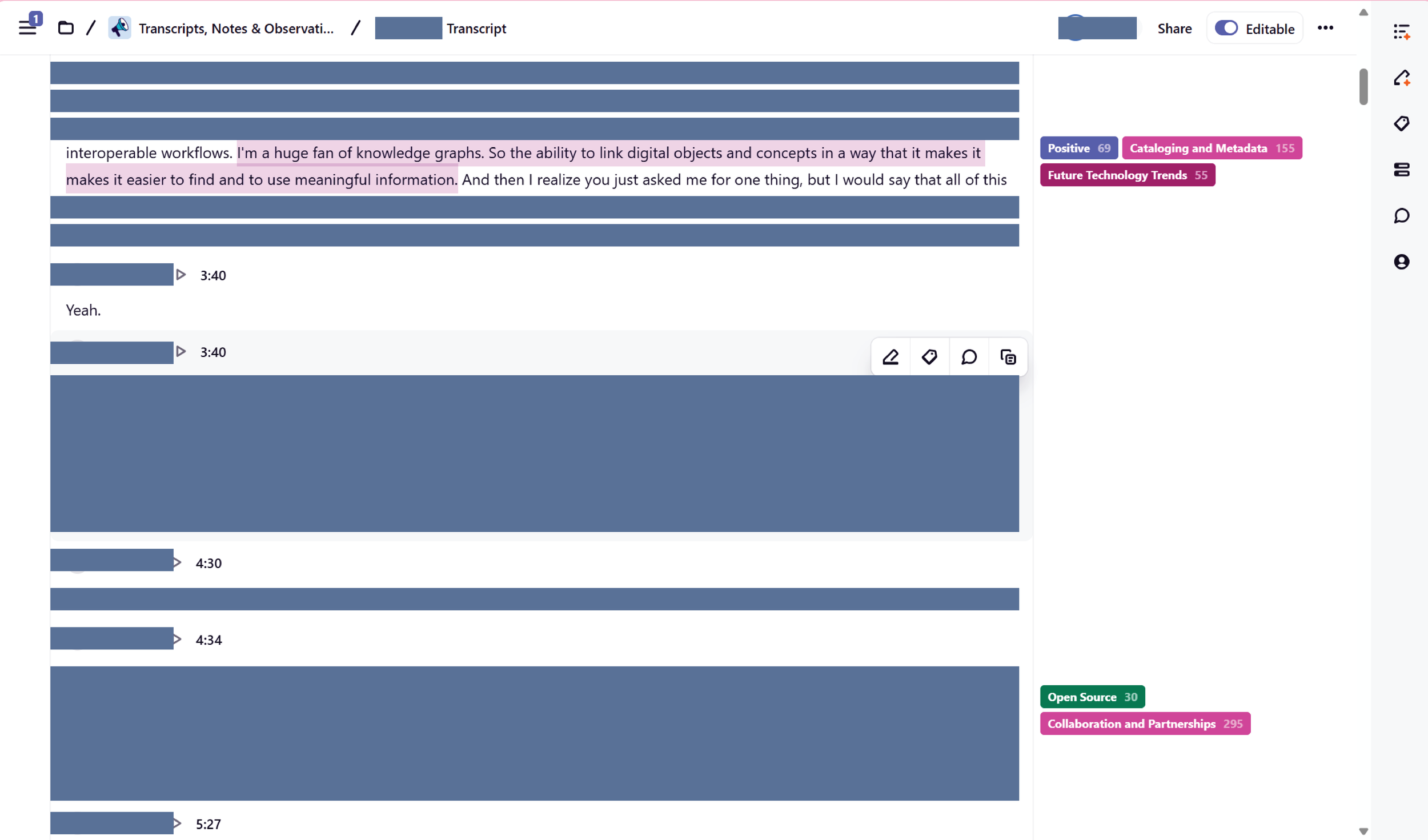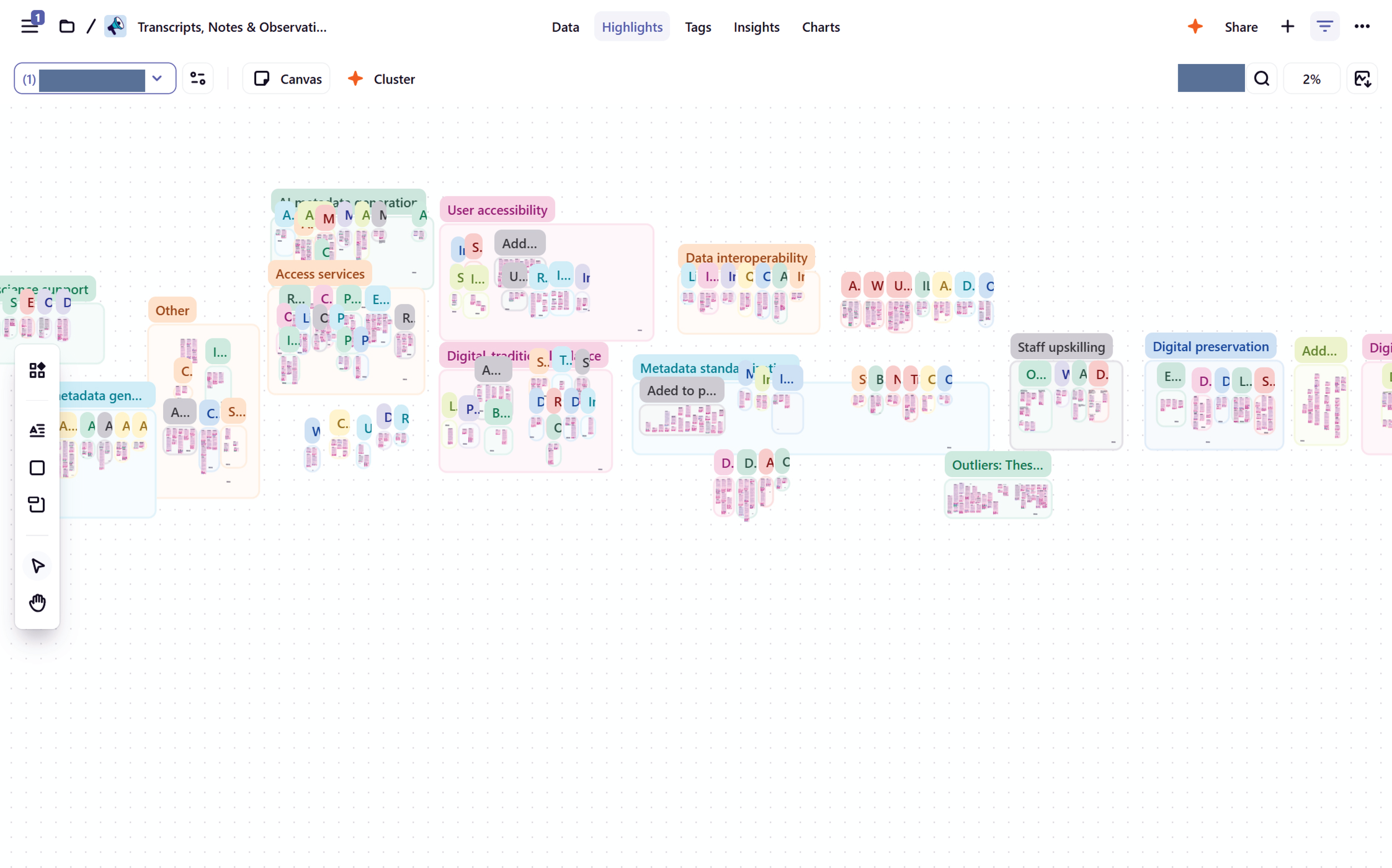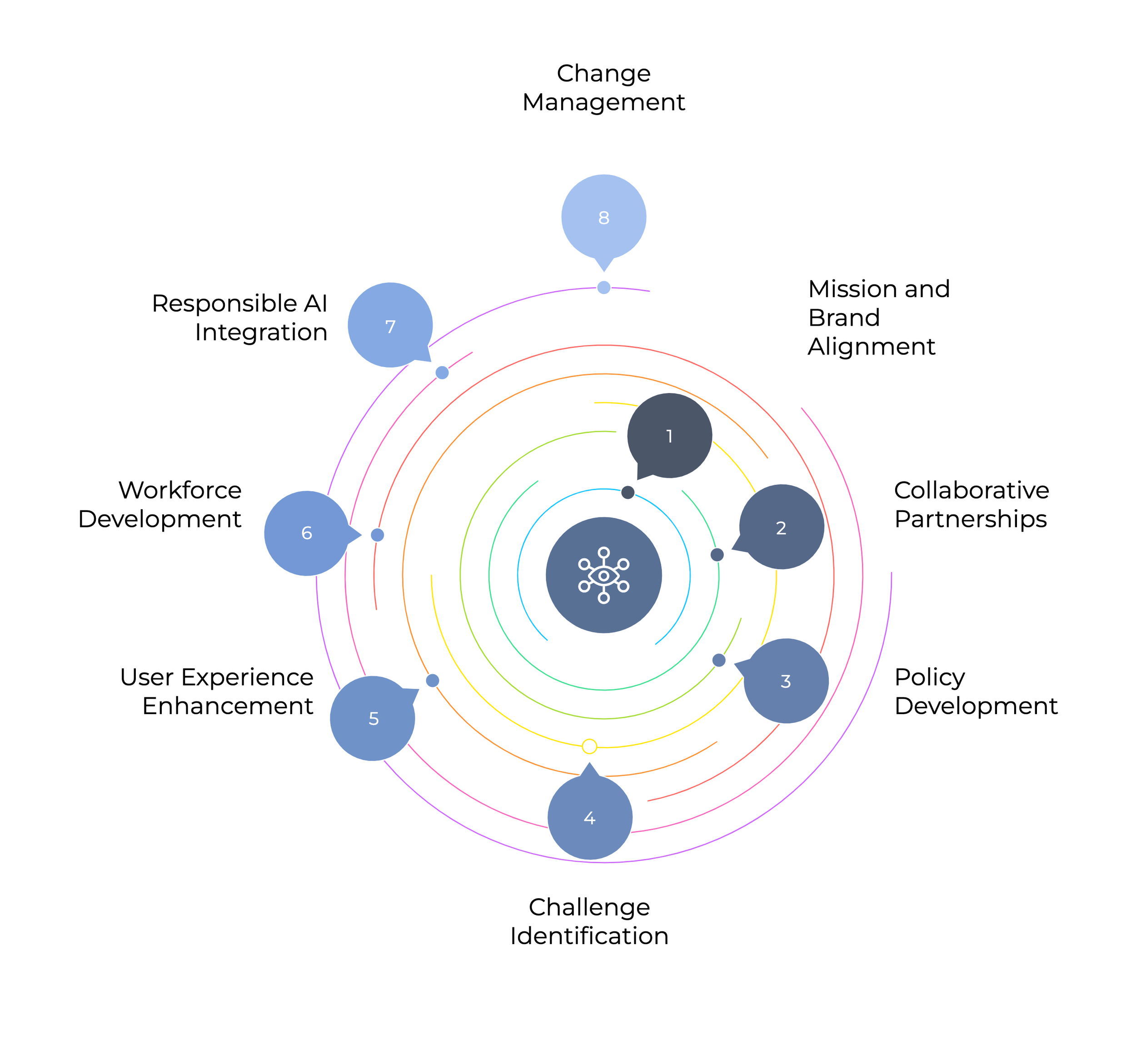DIGITAL STRATEGY - P01
Transformation & Modernization
-
Over the course of a year, a team consisting of user researchers, business analysts, project managers, and team leads worked to craft a forward-thinking digital strategy for a leading biomedical information center. This strategy was designed to shape the institution’s future efforts over the next 5 to 10 years, driving innovation, streamlining digital transformation, integrating cutting-edge technologies, and revolutionizing access to critical information. Through this strategic effort, the institution will be better equipped to redefine how knowledge is disseminated, shared, and utilized in the rapidly changing landscape of biomedical research.
-
Served as a UX researcher.
Skills used: Interview facilitation, note-taking, report drafting, technology research, analysis & synthesis, insight drafting, recommendation writing, workshop planning
-
Names and confidential details have been redacted and modified to preserve the anonymity of the project.
Project Objectives
Develop technology assessment reports evaluating current and emerging technologies and tools related to digitization, search and discovery, data storage and security, as well as metadata generation and management.
Conduct in-depth perspectives research through extensive interviews with relevant stakeholders to gain valuable insights.
Formulate strategic recommendations and action plans based on research findings and compile them into a comprehensive Digital Strategy report.
Technology Assessments
The reports evaluated various tools across key categories, including product features, storage, security and privacy, platform compatibility, installation and maintenance, and pricing.
Process: The team divided into pairs to explore different aspects of the technology assessments. Throughout this process, members conducted secondary research to gain a deeper understanding of the technical challenges identified by the institution and its stakeholders during interviews, as well as potential technology solutions that could address these issues.
When gaps in secondary research arose, the team conducted interviews with technology experts and vendors to ensure the reports were thorough and actionable.
Perspective Interviews
The Digital Strategy team conducted 68 in-depth interviews with key stakeholders across six distinct groups, each offering valuable perspectives.
Board of Directors – Provided strategic vision for the institution’s future.
Organizational Directors – Shared insights on organizational goals and challenges.
Team Leadership – Offered perspectives on technology, team dynamics, and operational needs.
Digitization Specialists – Addressed challenges and logistics related to digitization efforts.
Metadata Specialists – Added technical expertise on metadata generation, management, and sharing obstacles.
Front-End Employees – Provided operational insights on tools, platforms, work systems, and user engagement.
The coded excerpts were systematically grouped, with each group serving as the foundation for generating key insights. By the end of the analysis process, the team had distilled 234 insights to inform the development of recommendations for the digital strategy.
^Transcript Sample (redacted) - Dovetail
Using the transcribed and recorded interviews, the Digital Strategy team coded relevant quotes and excerpts in Dovetail, using a custom tagging system that highlighted emerging themes from the interviews.
^Affinity Mapping - Dovetail
Insights & Objectives
The final report was structured around 8 key objectives, each designed to support the institution's long-term digital strategy.
Every strategic objective included a list of recommendations, a summary explanation, a list of benefits for the institution, relevant insights, interview quotes, and both short and long-term action plans.
Recommendations Overview
Align current and future initiatives with the institution's mission and brand.
Strengthen collaborative partnerships to accelerate digitization, digital transformation, and improved access and discovery.
Identify and address internal and external challenges that could hinder progress toward digital strategy objectives.
Develop and refine policies and procedures to effectively respond to the evolving technology and information landscape.
Create a seamless, user friendly and unified search and discovery experience by leveraging emerging technology, data management tools, and high quality metadata.
Equip the existing and future workforce with essential skills through comprehensive and adaptive training and recruitment strategies.
Integrate responsible AI into operational tools to boost efficiency while maintaining ethical considerations and quality safeguards.
Implement thoughtful change management strategies tailored to different teams and individuals across the institution.






